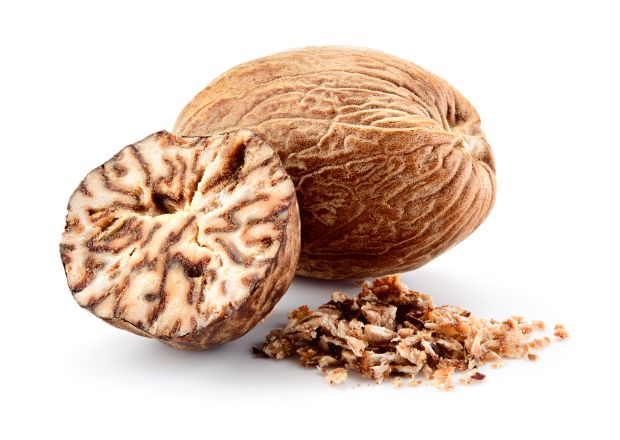Connect with a verified veterinarian in minutes. Licensed vets are available 24/7 to answer your questions. No need to worry about your furry family member.
It’s a fact that dogs love what we eat and usually beg for us to share a bit with them! The problem comes when we’re enjoying a candy bar, such as a Kit Kat. What could be the harm in sharing a bite of a Kit Kat bar with your dog? Let’s take a look.
Chocolate is Toxic for Dogs
The issue is that Kit Kat bars contain chocolate, which is toxic for dogs. Chocolate contains methylxanthines (which are caffeine and theobromine) and this substance is a poison in dogs.
Dogs are not able to metabolize theobromine and caffeine as well as humans do. These substances hang around in the dog’s system rather than being cleaned out by the kidneys.
Not all chocolates contain the same amount of this substance, either. Generally, the darker and more bitter the chocolate, the worse the toxicity level is. For instance, milk chocolate is not as bad as chocolate such as baking chocolate, which has the highest concentration of methylxanthines.
Toxicity also depends on how much of the chocolate a dog has eaten and the size of the dog. For instance, if a 30 lb dog has eaten 1 oz of milk chocolate, chances are he will be OK. The dog may develop nausea and vomiting, or even diarrhea, but he will be OK. However, if a 30 lb dog eats 1 oz of dark chocolate, then he may need medical attention.
So, the amount and type of chocolate, along with the dog’s weight, can determine how sick the chocolate can make him. These factors also indicate whether or not the situation is a medical emergency.
Kit Kat Bars
Kit Kat bars are made with milk chocolate, which has the lowest amount of toxic substances for dogs. Thankfully the bars are small, with a regular Kit Kat bar coming in at 1.5 oz. In general, anything more than 0.5 ounces per pound of body weight of milk chocolate can put dogs at risk of chocolate poisoning. Here is how much chocolate in a Kit Kat bar could affect a dog by weight:
- 5 oz. for a 10 lb dog
- 10 oz for a 20 lb dog
- 15 oz for a 30 lb dog
In these instances, you’ll need to call the vet as soon as possible.

Review symptoms, medications & behavior to keep your pets healthy with a Vet Online in just minutes.
Ask a Vet Live NowIs It Best to Wait for Symptoms to Appear Before Calling the Vet?
No. If you’ve seen your dog eat enough of the Kit Kat bar to cause toxicity, you must call the vet ASAP. It can take between 6 to 12 hours for symptoms to appear after your fur baby’s eaten chocolate. So, if your dog has eaten chocolate, don’t wait for symptoms to show up. Call the vet, even if this happens after hours.
When you do call the vet, they will want to know what your fur baby’s eaten and how much of it he ate. The vet will also ask how much your dog weighs. If you’re not sure of your dog’s weight, it’s OK to give the vet an estimate. The information is necessary for the vet to determine whether this is an emergency or not. Remember, chocolate toxicity in dogs is dependent on the type of chocolate eaten, how much was eaten, as well as your dog’s weight.
Symptoms of Chocolate Toxicity in Dogs
Dogs may experience any of these symptoms after eating chocolate:
- Vomiting
- Diarrhea
- Restlessness
- Increased urination and drinking
- Tremors
- Elevated heart rate
- Rapid breathing
- Seizures
- Collapse
- Death (due to cardiac failure)
If your fur baby has only eaten a small bit of a Kit Kat bar, chances are he will be just fine if he’s a large dog monitor him for any signs of chocolate poisoning. Your vet will give you the best advice on next steps. If they think that your dog has eaten a toxic amount of chocolate, they may make him get sick and give him treatment for poisoning.
How is Chocolate Toxicity Treated in Dogs?
The vet may give your dog activated charcoal, which absorbs the chocolate toxins from your fur baby’s digestive system. They may also give your dog intravenous fluids. This helps remove the toxins from his body, supports his cardiovascular system, and keeps your fur baby hydrated.
The vet will also treat any other symptoms that may appear after your dog has eaten the Kit Kat bar.
When it comes to chocolate, dogs are as thoroughly in love with it as we are. However, never give your canine companion chocolate, even if you’re tempted. It could make him very sick. If your fur baby just has to have chocolate, then consider carob, which is a safe chocolate alternative for our dogs!
Connect with a verified veterinarian in minutes. Licensed vets are available 24/7 to answer your questions. No need to worry about your furry family member.

Aisling O'Keeffe, MVB CertSAM ISFMCertAdvFB
This article has been reviewed and approved by an independent Veterinarian: Aisling qualified as a vet 7 years ago from University College Dublin. She has worked in a mixture of UK small animal hospitals along with Irish practices. She worked for 3 years in a feline-only hospital where she further developed her feline medicine and surgery skills. She currently lives and works in a small animal hospital in Cork, Ireland.
Review symptoms, medications & behavior to keep your pets healthy with a Vet Online in just minutes.
Ask a Vet Live Now






